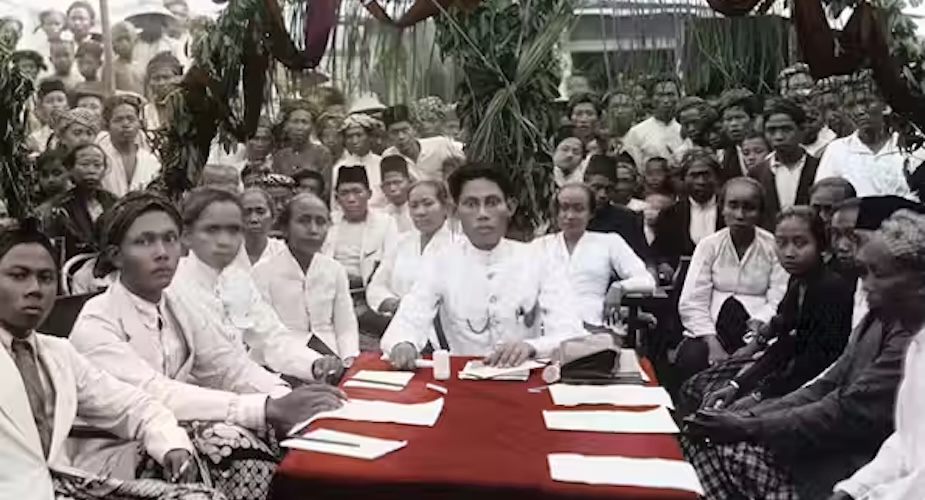Heru Cahyono, Pangkopkamtib Jenderal Soemitro dan Peristiwa 15 January '74, Pustaka Sinar Harapan, Jakarta 1998 (see Bookshop page for availability).
Reviewed by DAVID BOURCHIER
This is one of a string of fascinating memoirs published in recent years in which military figures prominent in the early years of the Suharto regime have sought to lift the lid on the murky past.
Sumitro headed the almost omnipotent internal security agency Kopkamtib from March 1973 till January 1974, placing him almost at the centre of power.
He is probably best remembered for his dramatic fall from grace following the 'Malari' riots that rocked Jakarta in January 1974 and shook the government to its foundations. Suspecting that Sumitro was rallying students to support a bid to take over power, Suharto promptly sacked him, closed down several newspapers and threw a number of students and intellectuals in prison.
In this book Sumitro attempts to untangle the events leading to Malari, which seem to have taken him completely by surprise. He focuses on the role played by Suharto's wily intelligence aide Ali Murtopo, who he blames for engineering the riots and causing his downfall.
In fact almost the entire book is devoted to examining the intrigues of the late Ali Murtopo, with whom Sumitro clearly has a morbid fascination. He argues that Murtopo, with the help of the Centre for Strategic and International Studies, worked methodically to pick off his enemies one by one and build a South Korean style intelligence empire which would eventually seize power from Suharto.
At the same time, however, he praises Murtopo for successfully building the political structures of the New Order in the 1970s, for his genius as a political operator, for his aversion to personal corruption and for his clear vision. The sting in the tail for Suharto is Sumitro's conclusion that Ali Murtopo would have been exactly the sort of president Indonesia needed.
Ghost written by the journalist Heru Cahyono, himself an expert on the period, this book is easy to read and often entertaining. It is a valuable source for anyone interested in one of the most colourful - and little researched - architects of the New Order. Sumitro died on 10 May 1998.
David Bourchier is a researcher at the Asia Research Centre, Murdoch University, Perth.











